EU Project Pravo-Justice Digest. Issue No. 12 of 7 December

Meet the information digest of EU Project Pravo-Justice, where we talk about the events which took place within the period from Digest – Top News of EU Project Pravo-Justice from 1 November to 5 December 2024.
Supporting European Integration in the Justice Sector
- The consultations on the draft Roadmap for the Rule of Law started under the coordination of the Office of the Vice Prime Minister for European and Euro-Atlantic Integration and the Ministry of Justice of Ukraine, supported by EU Project Pravo-Justice.

On 27 November and 2 December, the Ukrainian side presented the draft Roadmap for the Rule of Law for each subcluster of negotiating chapter 23 ‘Judiciary and Fundamental Rights’ and negotiating chapter 24 ‘Justice, Freedom and Security’.
The EU representatives thoroughly reviewed the document and provided suggestions for improving it.
- EU Project Pravo-Justice held a roundtable event ‘Teaching EU Law’. According to Olha Sribniak, Deputy Team Leader of EU Project Pravo-Justice, the rapid pace of European integration means that Ukraine must accelerate the education of professionals competent to work as part of EU legal system.
‘The 2024 EU Enlargement Package Report underlines how urgent it is for Ukraine. In particular, it emphasises that we must continue to strengthen legal education standards and focus more on EU law, practical skills, and integrity,’ she said, adding that EU Project Pravo-Justice will provide comprehensive support in introducing new EU law courses.
- On 5 November, EU Project Pravo-Justice supported the Ministry of Justice of Ukraine in holding an online consultation ‘How the State can Promote Mediation between the Parties to the Conflict’. Representatives of the Ministry of Justice, the State Property Fund, the Free Legal Aid Centre, Supreme Court justices, mediators and experts of EU Project Pravo-Justice participated in the discussion.
Katilin Popov, international expert of EU Project Pravo-Justice and a private enforcement officer from Bulgaria, presented European trends in mediation, particularly how it is applied and whether it proves efficient in enforcement proceedings.
‘The procedural codes of all EU Member States allow (and some even oblige) the parties to the conflict to participate in mediation procedures,’ the expert said.
- The round table ‘Influence of European Integration Trends on the Implementation of the Institute of Mediation in the Administrative Courts of Ukraine’ took place in Lviv. The event was organised by the Cassation Administrative Court within the Supreme Court and Eighth Administrative Court of Appeal together with EU Project Pravo-Justice.
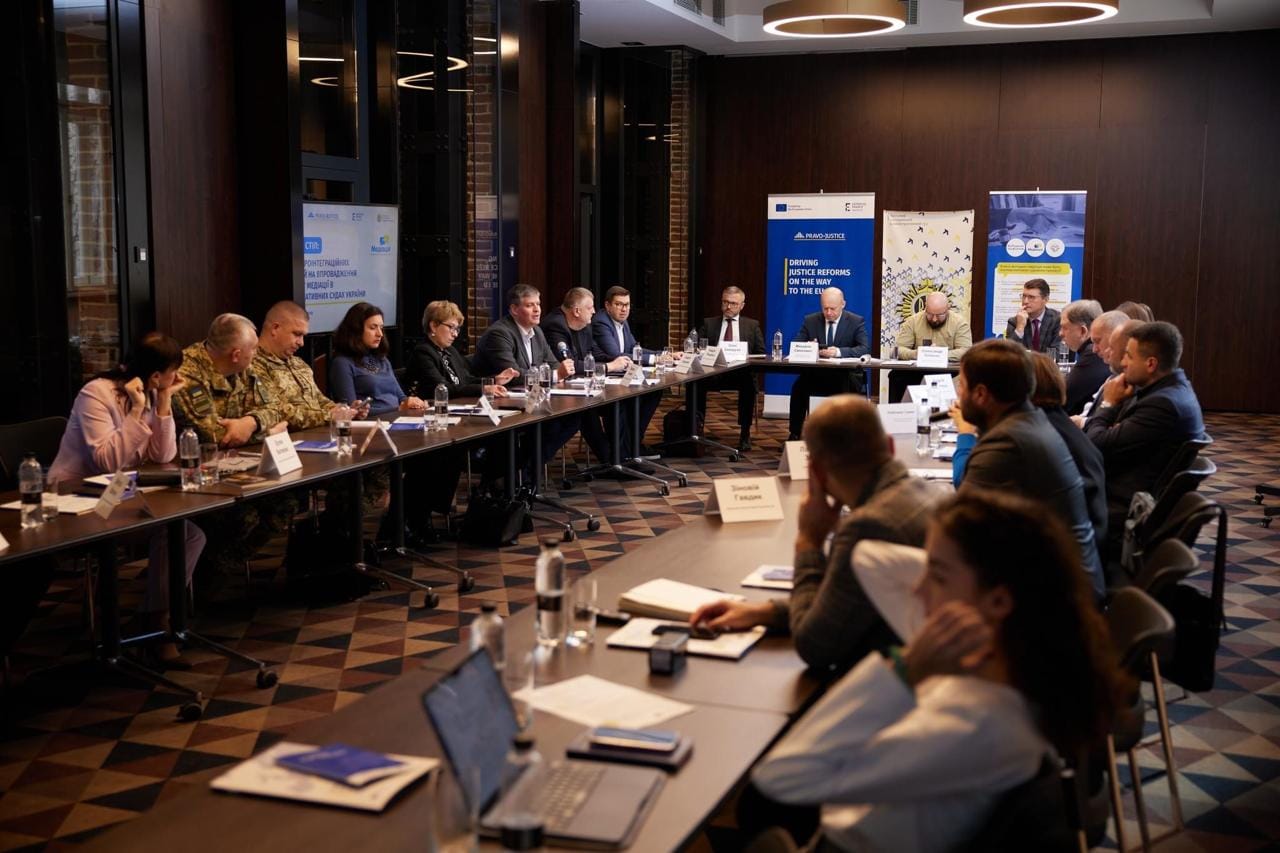
Virgilijus Valančius, Key International Expert of Support to EU Integration Process in the Justice Sector Component of EU Project Pravo-Justice, focused his speech on the best practices of European countries in the introduction and practical application of mediation. According to him, to further develop this service in Ukraine, when settling administrative disputes in authorities and administrative courts, it is essential to follow best practices of the EU, where authorities have discretion regarding the use of ADR.
- On 19 November, within the framework of EU Project CONSENT, EU Project Pravo-Justice, together with the Ukrainian Academy of Mediation, presented a Scientific and Practical Commentary to the Law of Ukraine ‘On Mediation’ produced with the support of EU Project Pravo-Justice. It is addressed to a wider audience interested in learning about the essentials of mediation and the role of a mediator, as well as to everyone who is facing disputes (conflicts) and is looking for ways to resolve them.
According to Oksana Tsymbrivska, Team Leader of EU Project Pravo-Justice, the commentary contains clear explanations, practical examples and tools that will help to effectively apply mediation in various areas.
‘This commentary will become a reliable reference point for those who want to better understand mediation and put it into practice. This is yet another important step towards expanding the use of mediation in various spheres of public relations for the peaceful settlement of conflicts,’ noted Oksana Tsymbrivska.
- On 15 November, Yurii Fedkovych Chernivtsi National University hosted the International Scientific and Practical Conference ‘Mediation & Universities 1.0’. It was supported by EU Project Pravo-Justice, the Ukrainian Academy of Mediation and other partners within the framework of EU Project CONSENT.
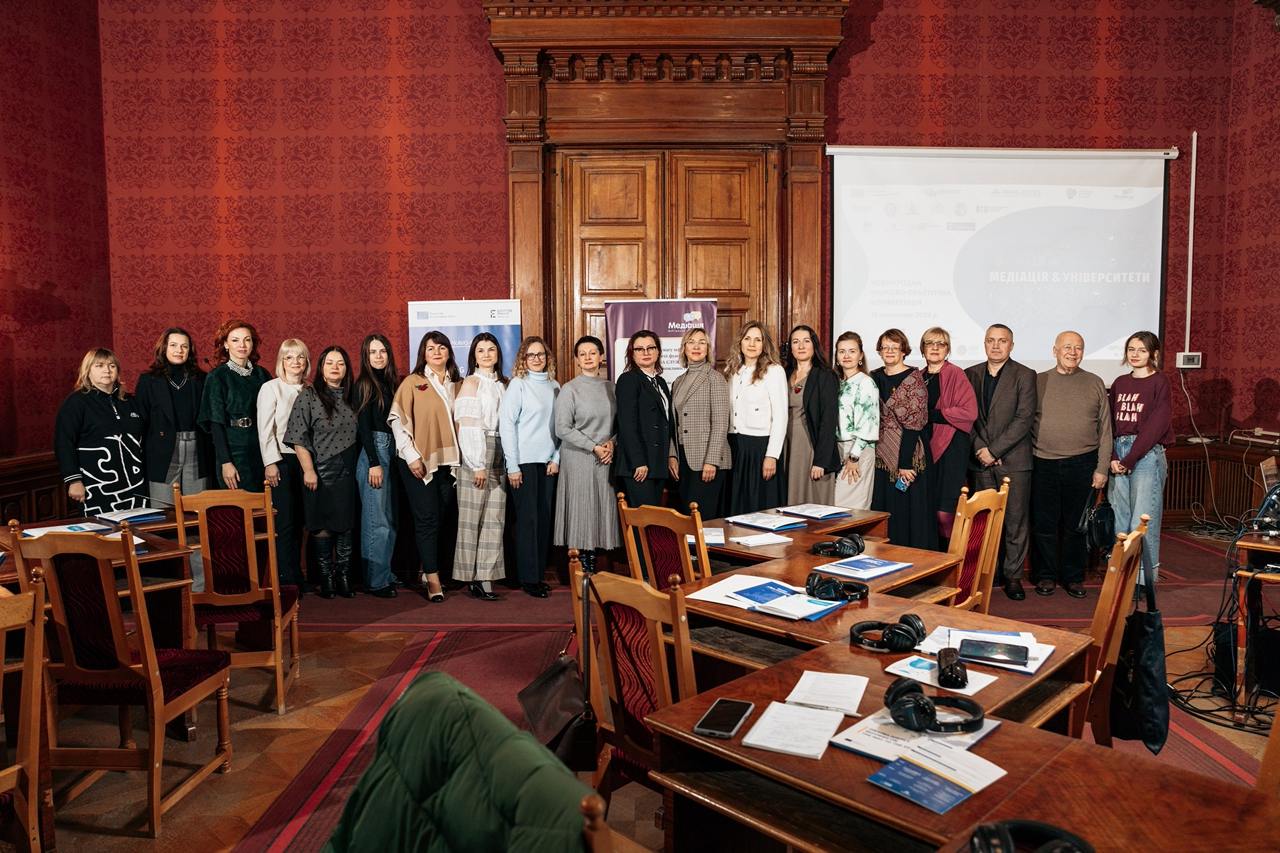
The conference aimed at exploring various aspects of mediation in universities, particularly as part of training curricula, academic research, and institutional mechanisms, as well as raising awareness of the role of mediation in higher education and promoting its further development.
According to Oksana Tsymbrivska, Team Leader of EU Project Pravo-Justice, mediation should become a mandatory component of the training of professionals in various fields.
Enforcement and Protection of Property Rights
- On 5 November, at the initiative of the Association of Private Enforcement Officers of Ukraine and with the support of EU Project Pravo-Justice, a discussion dedicated to the current issues of suspension and termination of activities of PEOs in Ukraine was held.
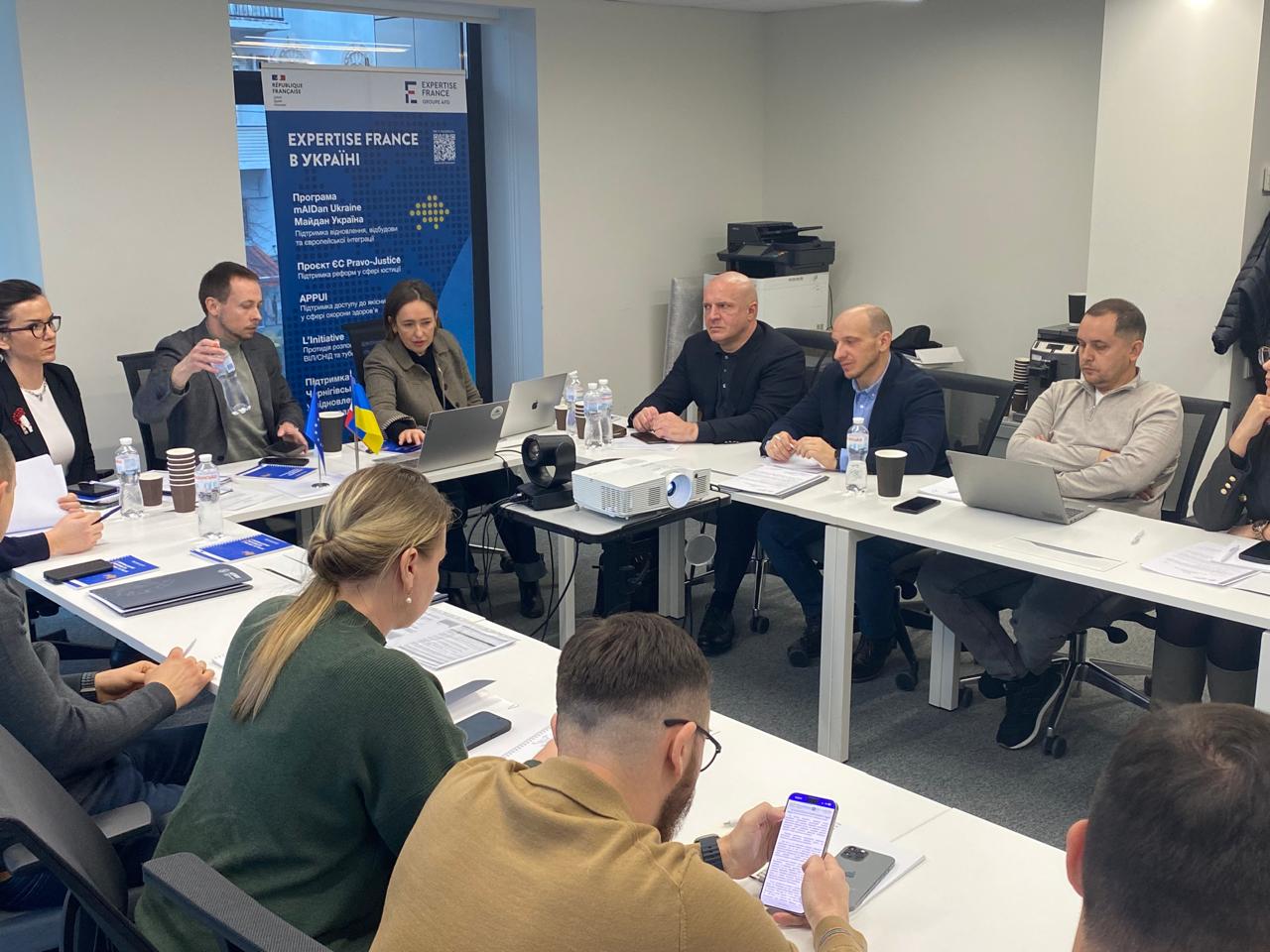
Iryna Zharonkina, Enforcement and Protection of Property Rights Component Lead of EU Project Pravo-Justice, spoke at the event.
‘Enforcement of court decisions is an important component of the citizens’ right to judicial protection. Ukraine’s obligations related to European integration provide for the improvement of the sphere of enforcement. In wartime, which is accompanied by migration and mobilisation, it is also necessary to resolve issues related to the replacement of PEOs,’ Iryna Zharonkina said.
Prosecutorial Reform and Prosecution for International Crimes
- EU Project Pravo-Justice, in collaboration with the Helsinki Foundation for Human Rights, Project Sunflower, and the Ministry of Justice of Poland, co-organised the international conference titled ‘Accountability for the International Crimes Committed in Ukraine: Joint Efforts to Make It Happen’. The event, held in Warsaw on 13 November 2024, brought together policymakers, legal experts, academics, and representatives of civil society from Poland, Ukraine, and across Europe to explore critical efforts in addressing impunity for international crimes committed by Russia in Ukraine.
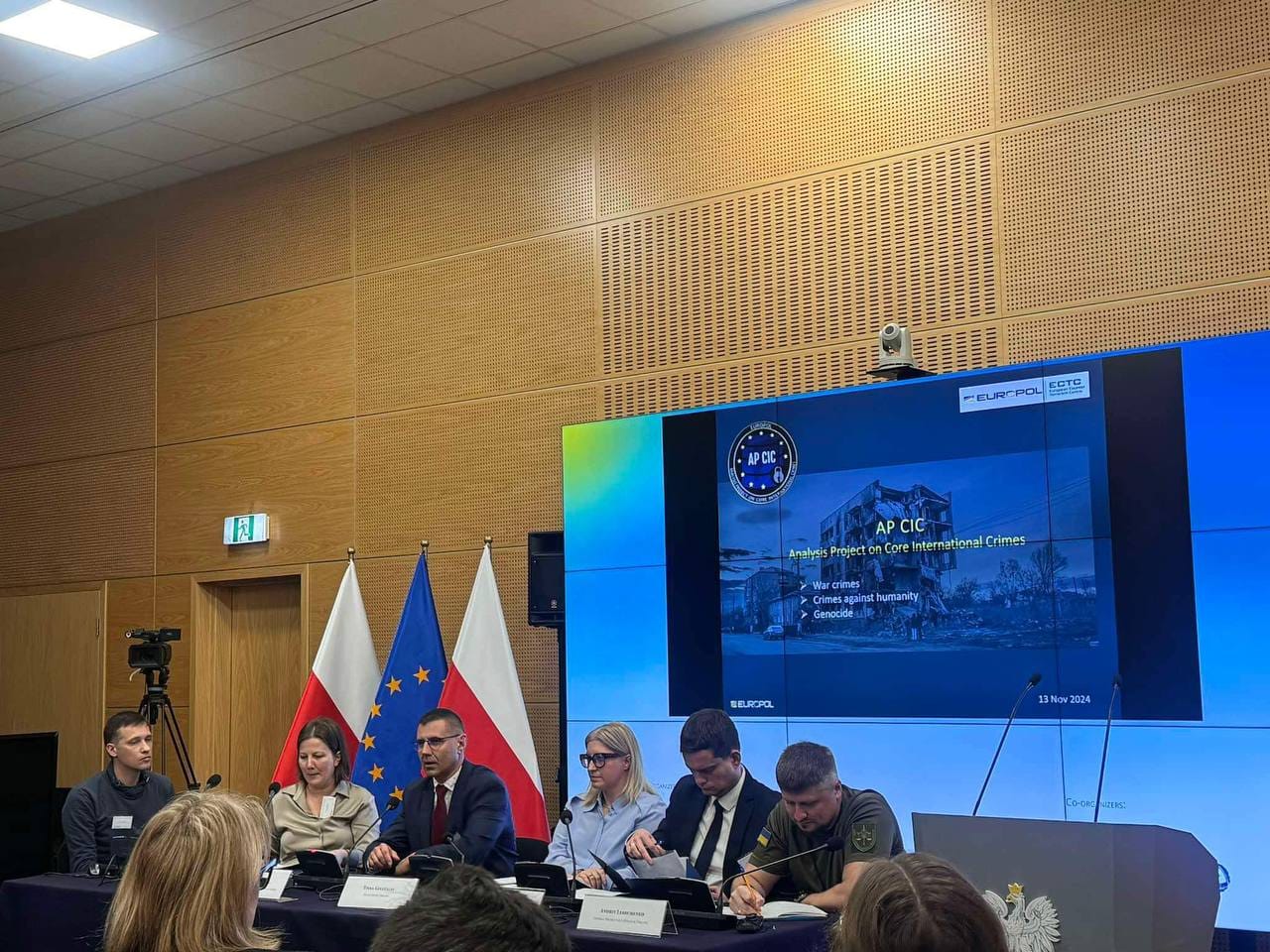
Tinna Goletiani, Senior International Expert of EU Project Pravo-Justice, participated in the conference. She emphasised the broader global responsibility in securing accountability.
‘Accountability is not merely a matter of legal obligation or political expediency; it is a foundational pillar of sustainable peace and long-term stability. This is not just Ukraine’s struggle; it is a shared global responsibility. Therefore, the key to achieving effective accountability lies in meaningful and comprehensive international cooperation,’ she said.
- EU Project Pravo-Justice transferred special equipment to the Specialized Environmental Prosecutor’s Office of the Office of the Prosecutor General. It aims to step up efforts to ensure accountability for international crimes committed in Ukraine.
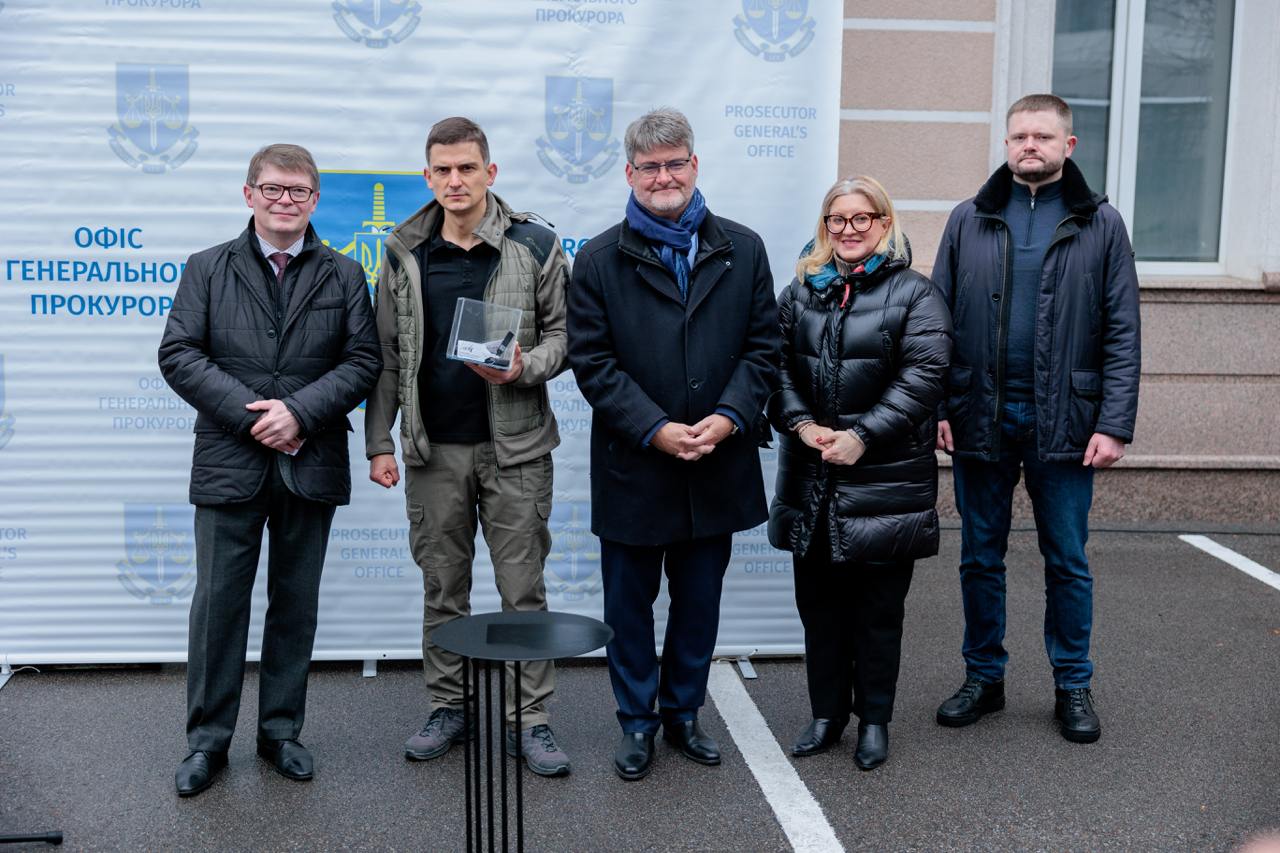
The equipment provided includes two SUVs and devices facilitating documentation, investigation and prosecution of international environmental crimes. This important contribution to the fight in the name of justice has become possible thanks to funding provided specially by the Government of the French Republic.
- On November 19-20, with the support of EU Project Pravo-Justice, a training ‘Psychological Support for Victims and Witnesses During and After Investigative Actions’ was held at the Prosecutors’ Training Centre. The staff of the Coordination Centre for the Support of Victims and Witnesses, as well as prosecutors of the Office of the Prosecutor General and regional public prosecutors’ offices working with war crimes, including conflict-related sexual violence (CRSV) crimes, attended the event.
The training was delivered by Israeli experts who are experienced psychotherapists and professionals in the field of working with trauma. They shared practical tips on providing psychological support to victims and witnesses of war crimes, with a particular focus on working with persons affected by CRSV.
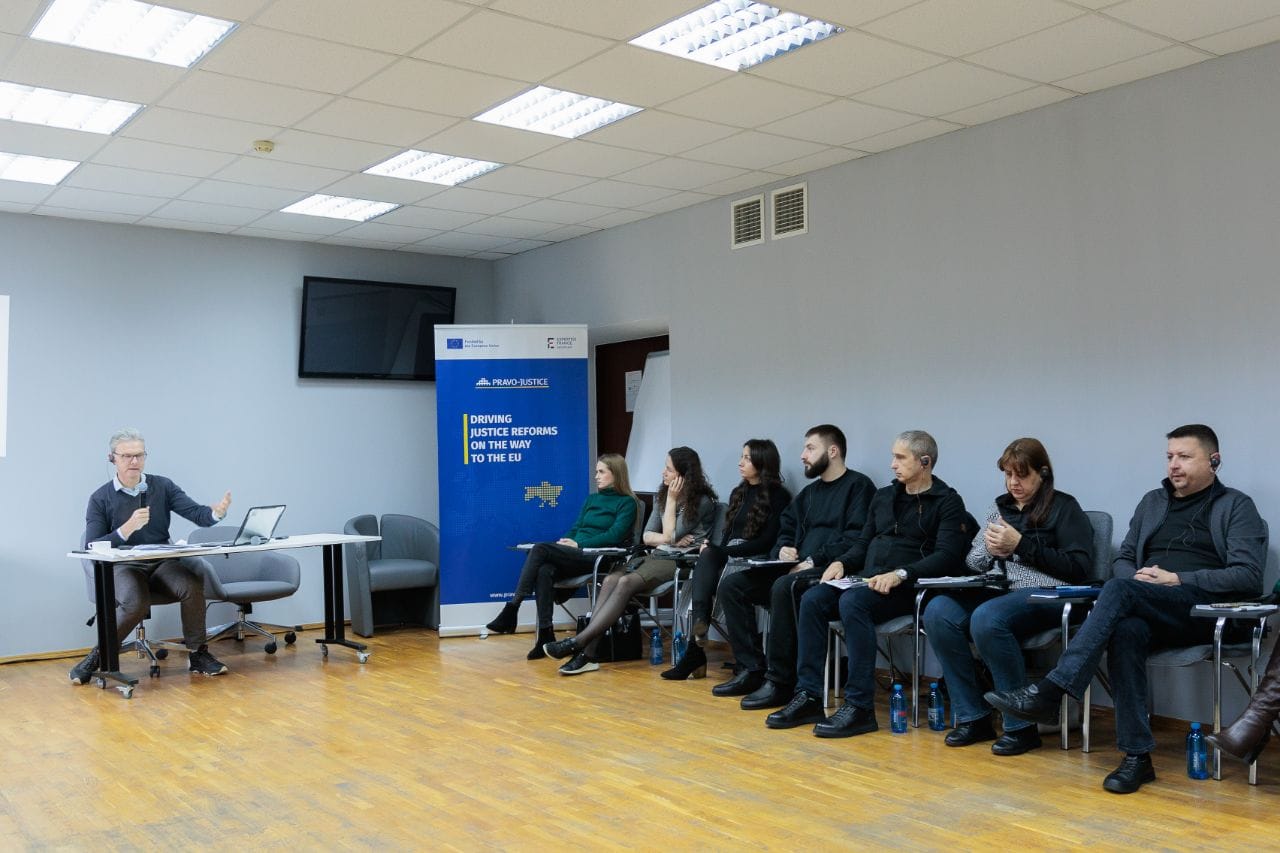
On November 20-21, the Project supported yet another training ‘Practical Techniques for Interviewing and Providing Post-Interviewing Support to Vulnerable Witnesses of CRSV’ for prosecutors of the Office of the Prosecutor General and regional public prosecutors’ offices.
The training was delivered by Martin Hackett, international expert of EU Project Pravo-Justice, international prosecutor and barrister with over 27 years of experience. During the training, he focused on effective methods of interviewing that ensure respect for the rights and dignity of witnesses.
- Conference ‘Justice for Victims of Gender-Based Violence’ was held in Kyiv.
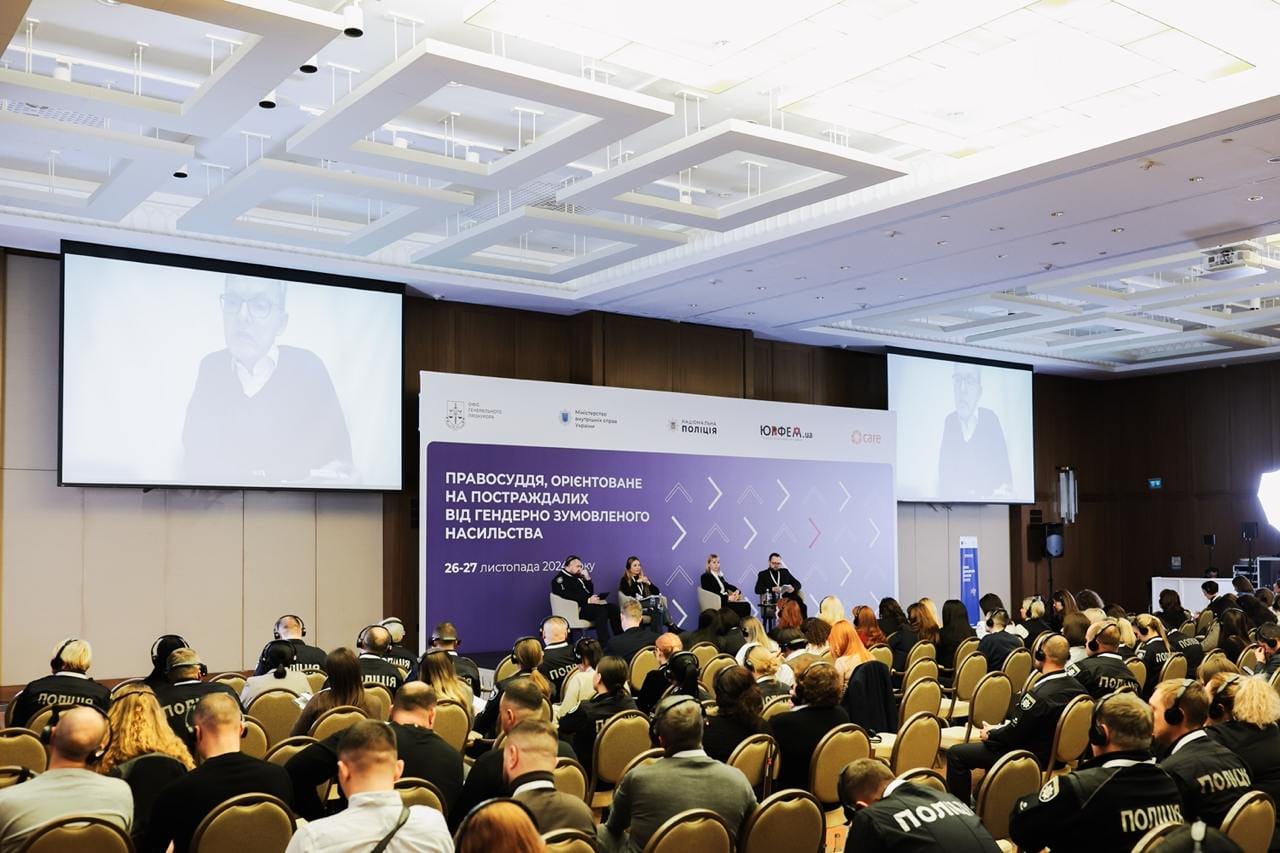
The two-day event gathered more than two hundred participants. International experts from EU Project Pravo-Justice, namely Shimona Grodzin Cesary, Head of the Educational Psychology Service in Ashdod (Israel), an expert in educational psychology, and Martin Hackett, international prosecutor, lawyer, former head of the War Crimes Investigation Unit of the Specialist Prosecutor’s Office of the Republic of Kosovo, participated in the event.
Shimona Grodzin Cesary contributed to the discussion on challenges in conducting forensic psychological examinations in gender-based violence (GBV) cases and the special aspects of working with victims. She shared her extensive experience of working as a conflict zone psychologist. In the meantime, Martin Hackett focused on the practices of different countries in responding to and investigating GBV cases.
Judicial reform
- On 14 November, at the initiative of EU Project Pravo-Justice, the final roundtable was held as a follow-up to the training course ‘Services for Vulnerable Court Users in Wartime: International Standards and National Experience’. The event was attended by judges, court staff, and the Project’s national and international experts.
Volodymyr Chaban, Judiciary Component Lead of EU Project Pravo-Justice, noted that preparing the judicial system to work with vulnerable users of court services is one of the Project’s cross-cutting areas of intervention. According to him, within the framework of the Model Courts Initiative, more than 60 courts have successfully implemented services for vulnerable court users.
‘EU Project Pravo-Justice supported the development of a methodology for creating services for vulnerable court visitors. An important activity was also training trainers who have completed the courses and continue developing the community of professionals, including by teaching at the National School of Judges of Ukraine. The Project experts also created an Interactive Guide for Trainers of the training course, which is also rolled out by the NSJ. All these initiatives have already resulted in many examples of courts implementing and designing services for vulnerable groups on their own initiative, even in wartime that brings about extra challenges for the Ukrainian judiciary now,’ emphasised Volodymyr Chaban.
- On 18 November, the Supreme Court hosted the presentation of the analytical report ‘Remote Hearings in Civil, Commercial, and Administrative Proceedings’ produced by NGO Interregional Expert Centre PRO Justice with the support of EU Project Pravo-Justice.
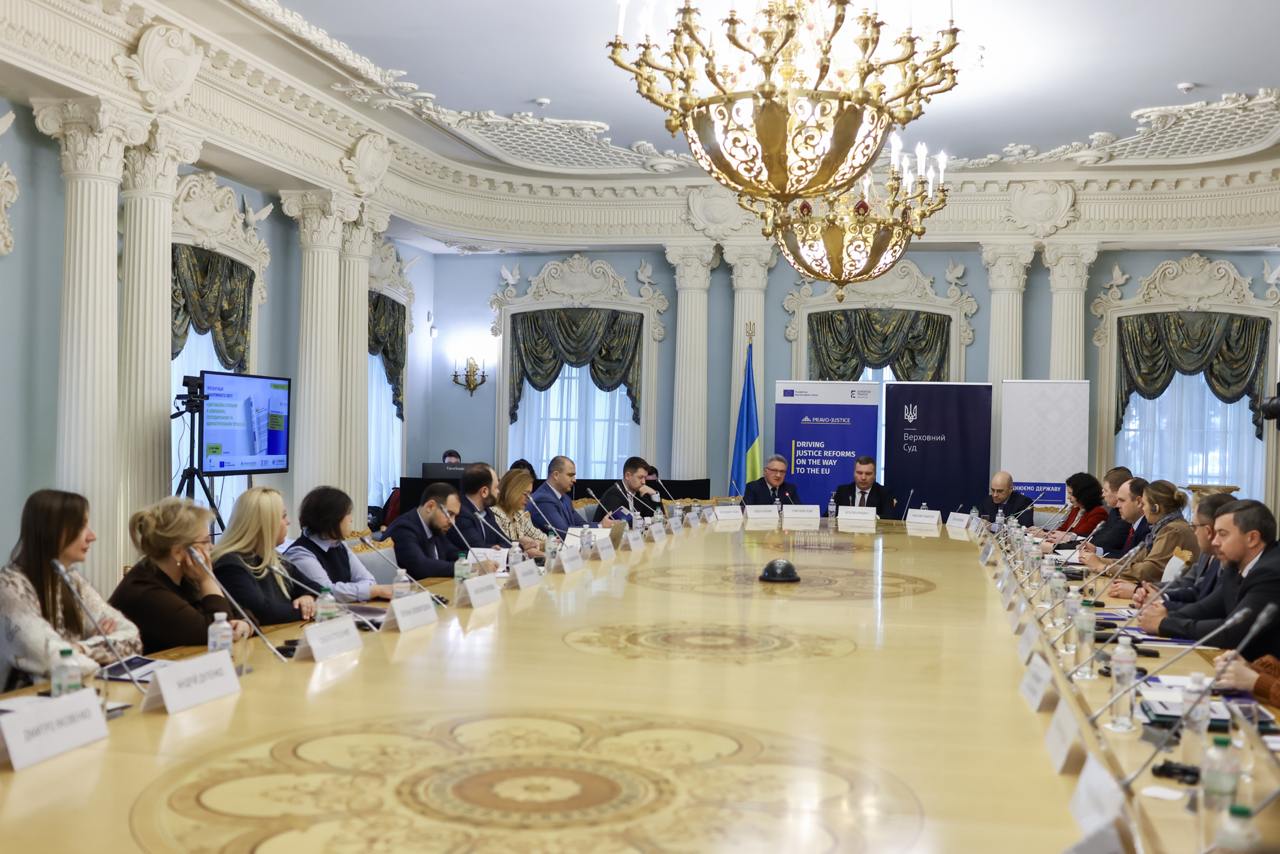
The report was presented by its authors, Roman Chumak and Olena Fonova. Olha Sribniak, Deputy Team Leader of EU Project Pravo-Justice, also participated in the presentation. She emphasised that the document not only outlined key challenges to the effective functioning of remote hearings but also analysed international practice and provided recommendations for improving this mechanism in Ukraine.
The report’s authors also presented their proposals and solutions to facilitate efficient remote hearings.
Penitentiary system reform
On 19 November, EU Project Pravo-Justice initiated and provided expert support in holding the first webinar in a series of workshops for staff of departments of social, educational and psychological work with convicts on ‘Depression and Ways to Overcome It’.
Olena Kochura, Key Expert on Support for Penitentiary System Reform of EU Project Pravo-Justice, spoke at the webinar. In particular, she pointed out that according to surveys of staff engaged in social, educational and psychological work with convicts, one of the most frequent requests is how to help convicts overcome depression.
‘In summer, EU Project Pravo-Justice organised a forum for psychologists working in penitentiary institutions and pre-trial detention centres. During that event, we surveyed staff engaged in social, educational, and psychological work with convicts to determine the competencies they would like to improve. It turned out that one of the most frequent requests was how to help convicts overcome depression,’ said Olena Kochura.
- EU Project Pravo-Justice provided penitentiary institutions with manuals on two correctional programmes for convicts, in particular, ‘Changing Pro-Criminal Thinking’ and ‘Supporting Family Connections’.
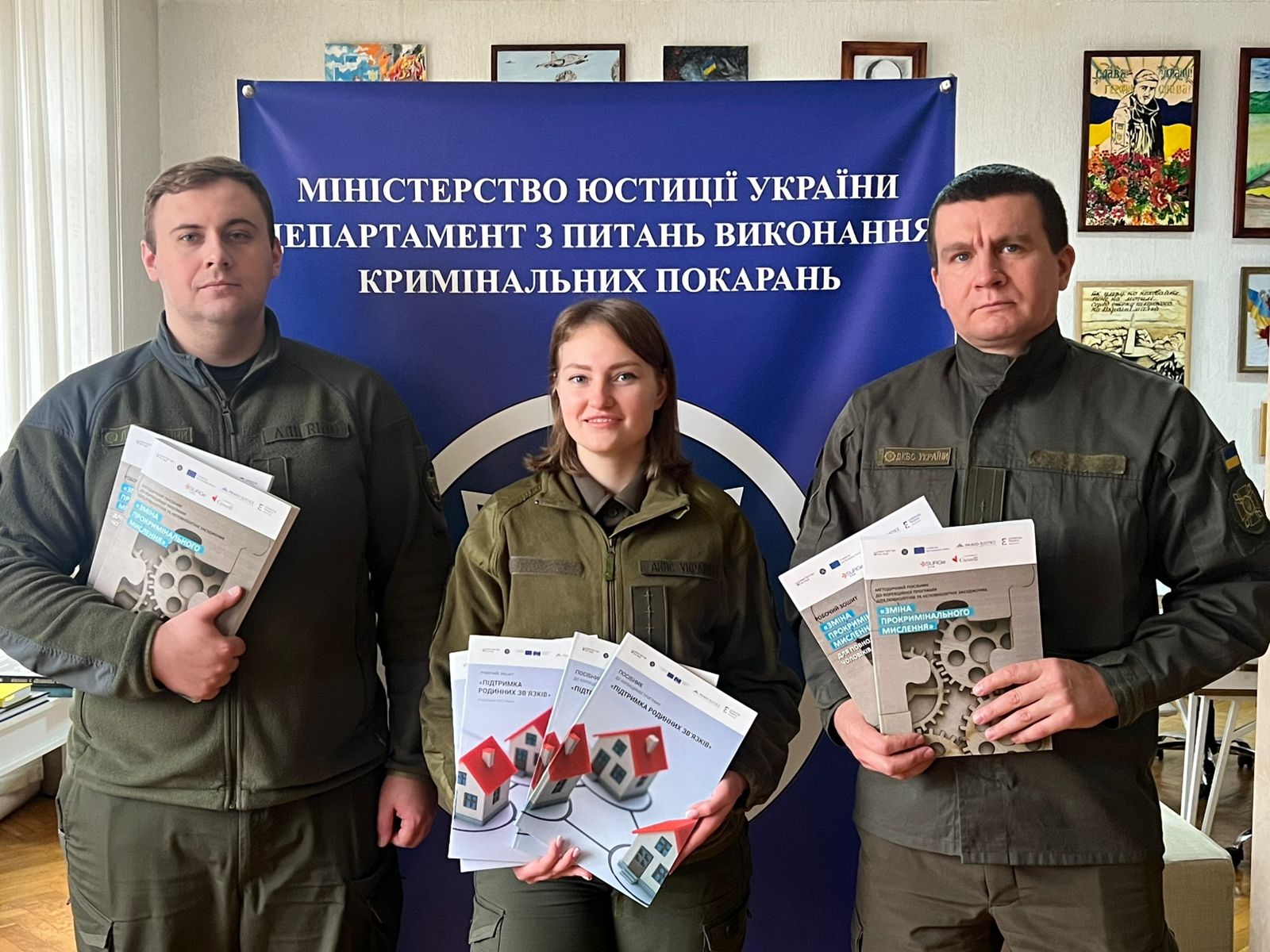
Each of these programmes consists of a manual for staff of the social, educational and psychological work departments in penitentiary institutions and a workbook for convicts.
According to Olena Kochura, Key Expert on Support for Penitentiary System Reform of EU Project Pravo-Justice, correctional programmes will help convicts to reduce the impact of criminogenic needs on their behaviour, improve relationships with their families, and develop pro-social thinking skills.